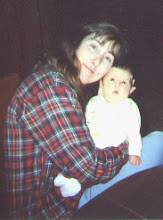In reading all the perspectives on Library 2.0, I was initially reminded of library guru, Ranganathan, and his law, "The library is a growing organism." Libraries should grow and adapt with the times, culture and technology that it finds itself in. Library 2.0, the goal to make the library more interactive and collaborative with its community, is fulfilling this law of Ranganathan.
I propose that most libraries have been doing "Library 2.0" all along. We have always listened to our community and tried to offer what they demand. The library I work at has computers for anyone to use (not just library card holders), brand new DVDs, multiple copies of best sellers, etc.
The virtual library exists at the library I work at as well. I assisted a gentleman on the phone who had signed up for an online library card. He was only planning to use that online library card to gain access to the Value Line database. He was never planning to enter the physical library itself. This is certainly an active example of Library 2.0 where we provide the customer with a new way to provide service instead of the customer coming to us.
We can not predict where libraries will be in 5 or 10 years, but if we apply the open ideas of Library 2.0 and remember that the library is a growing organism, we will be prepared for the future.
Subscribe to:
Post Comments (Atom)








2 comments:
Yes, what is being termed as ”Library 2.0” is not new. Library exists for its users and identifying users' information needs is the fundamental task in building up any library or information center. Getting feed back from users, monitoring their changing information needs, using modern technologies to enhance library service to users -- are all part and parcel of library operations and are all implications of the 5th Law of Library Science.
I wish to point out that my teacher Ranganathan’s 5th Law of Library Science is :
“Library is a Growing Organism”.
It is not just ”living organism”. The Library grows and develops always, adjusting to the changing environment by adapting and adopting. It has logistic growth, Ontogeny and phylogenic growth. The full text of Ranganathan’s . Five Laws of Library Science is available at: < http://dlist.sir.arizona.edu/1220/>
The modern social networking techniques that help accelerate networking with the society, a part of which constitutes the library user community, sure enhances the interaction with the users and allows for better communication and dissemination of information using podcasts, videocasts, teleconferencing, blogs, wikis etc.
These social community networking software systems are purposely kept as PERPETUAL beta SOFTWARE and songs of their praise sung loud because their saleable market value increases depending on the number of users, and hence there is a concerted effort to boost up their usage even in areas where their usage is just that scratches the outer surface a little and does not address the core functions.
In the name of ever changing technologies these are elevated to the level of all pervasive saviors. I am of the opinion that these are just communication techniques and do not address core issues of Libraries and hence cannot transform Library into a new version of Library. These have no standing to be called Library 2.0. You may call them by any other name such as social networking perpetual beta wonders. These might have produced some minor benefits to library services, but hardly the radical change of model. I am not aware of any killer application having been developed over the past three years that has transformed a library using these techniques. I have doubt whether any such significant Library application will ever be developed.
I am beginning to wonder whether Library 2.0 is a hype as these techniques are not developed with Library as the objective/ focal center, and do not address the core functions and operations of libraries.
I would like to refer to them as social networking techniques. I am sure no one would call telephone technology as Library 1.2 !.
F.J. Devadason
I changed the law from "living" to "growing." It has been many years since library school! Thanks for your insights!
Post a Comment